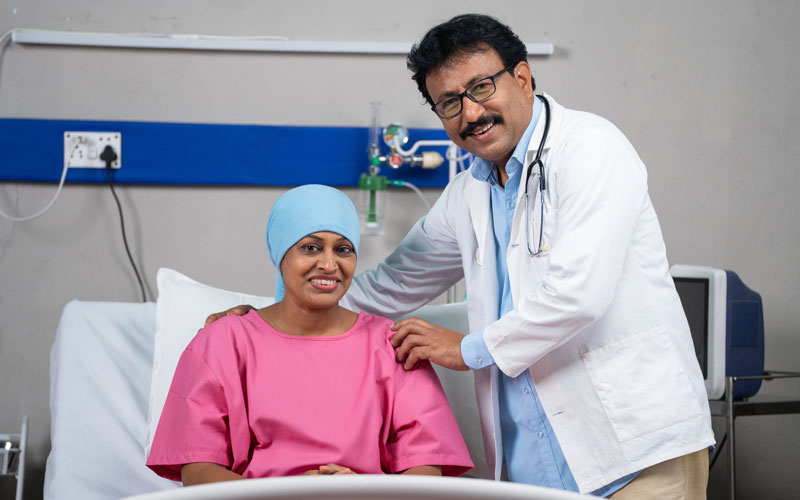
Completing cancer treatment is a significant milestone as whether you’ve gone through chemotherapy, radiation, surgery, or a combination of therapies, finishing treatment often brings a mix of emotions—relief, joy, anxiety, and uncertainty. Life after cancer isn’t just about getting back to normal—it’s about learning how to live well in a new chapter of your life.
This article provides in easy, plain language what life after cancer treatment is like, physical and emotional changes that are usual, follow-up care, and how to assist you in having a healthy and purposeful life.
After cancer treatment, everybody anticipates that life will resume exactly as it was before. In reality, your body and mind might have been altered. You can be stronger in some aspects and weaker in others. This “new normal” differs from individual to individual and can be something like:-
It’s fine to be different—let yourself heal not just physically but emotionally, as well.
Although the treatment is done, your body can heal from its impact. Some of the common physical problems after cancer treatment are:-
You will still feel weak for weeks or even months following treatment. That is normal. The body does not get stronger overnight.
Treatment with radiation or chemotherapy may alter your taste buds, appetite, and ability to consume food. Your body will adapt in the long run, but in the meantime, you may need to have frequent small, healthy meals.
Certain treatments damage the nerves, usually in the hands and feet (a condition known as peripheral neuropathy). Talk to your doctor about how to manage it.
Certain therapies for certain cancers will cause early menopause or hormonal imbalance. Talk to your medical team about hot flashes or mood swings.
It is natural for most people to worry about the cancer coming back. Others are depressed, lost, or even guilty of living when others did not. All of these emotions are absolutely normal.
Normal emotional reactions include:-
Speaking to a counsellor, support group, or other survivors can help. You’re not alone.
Following treatment, follow-up visits with your oncologist or primary care physician are crucial. These visits assist in:-
Follow-up schedule by the book
Make sure to return for all follow-up visits and inform your doctor about any new symptoms, however minor.
The majority of hospitals now offer a Survivorship Care Plan following treatment. This is a written report that contains:-
This guide puts you—and your family physician—on top of your long-term health.
Caring for your body and mind is a huge part of recovery. Here are important steps to aid your long-term health:
Emphasize fresh fruits, vegetables, whole grains, lean meats, and lots of water. Cut back on sugar, processed foods, and alcohol.
Exercise improves mood, energy, and immunity. Begin with walking, yoga, or gentle stretching and progress from there.
Smoking makes recurrence of cancer more likely. One of the best things you can do is quit. Alcohol should be restricted or eliminated as prescribed by your doctor.
Restoring sleep allows your body to rest and repair. Try for 7-9 hours of quality sleep each night.
Going back to work, school, or home life after cancer can be thrilling—but nerve-wracking. You might wonder if you have the energy or if others will treat you differently.
The following tips:-
Some treatments for cancer impact fertility (the potential to have children). If this is an issue, discuss your choices with your doctor.
You may also find that your sexual life or intimacy changes. This could be due to physical pain, fatigue, or mental issues. Talk freely to your partner and see a counsellor if needed. With therapy and time, intimacy can be re-established.
Assert your health by being informed:-
Getting involved in your care makes you feel safer and less afraid.
Survivorship naturally gives one another an outlook on life. Many survivors are inspired to:-
This sense of purpose is a healing force.
Cancer healing is a process. There will be tough days, but there will be more chances to learn, grow stronger, and smile once again. Healing will not be an overnight process, and that is perfectly fine. What is important is doing it one day at a time, taking care of your body and your mind, and staying with the people who matter to you.
Regardless of whether you are a survivor, a caregiver, or you are still undergoing treatment, keep in mind: You are greater than your diagnosis—and there is life after cancer.
Category : Life after Cancer Treatment
Tags: cancer treatment , Chemotherapy , life after cancer , life after cancer treatment , physical problems after cancer treatment , treatments for cancer